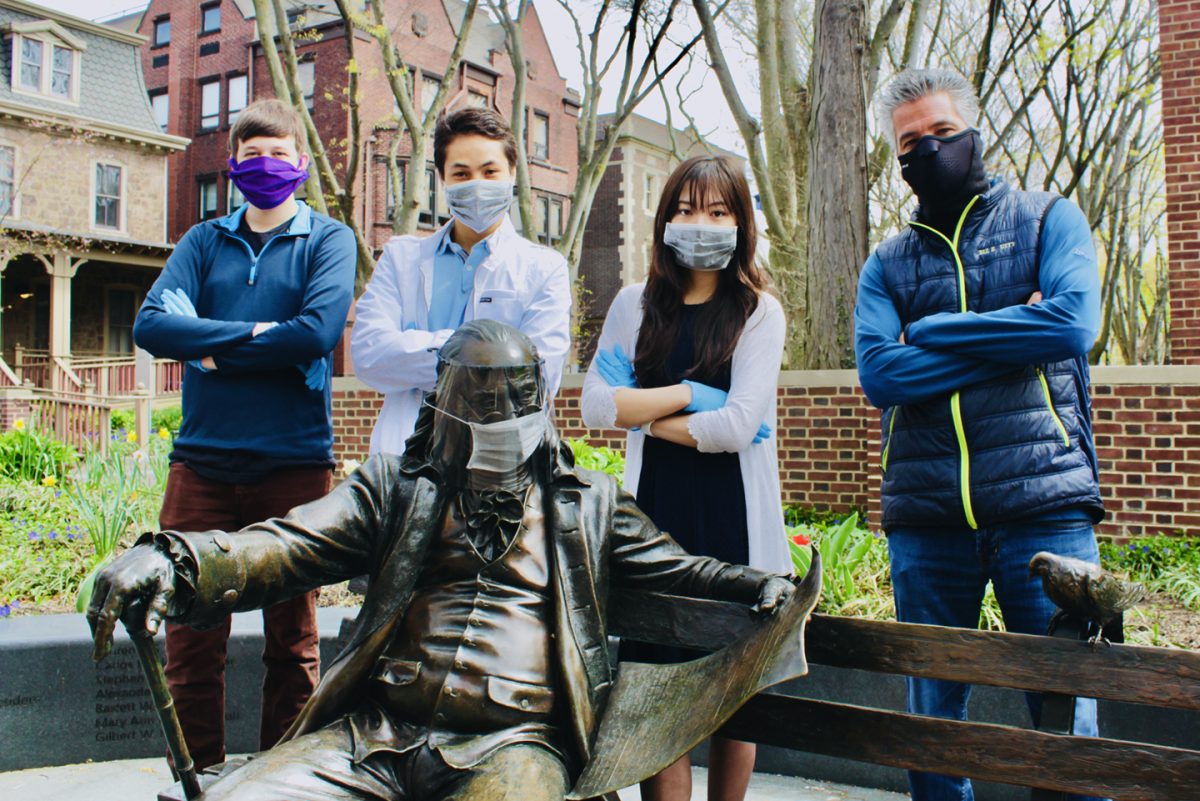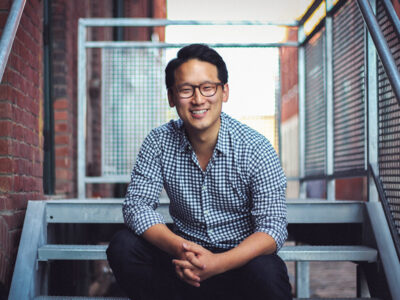
Meet the four alumni entrepreneurs who, after pausing their own ventures, are mass-producing PPE for local hospitals.
“What kind of world is it where the most impact you can make is staying home?” asks Tiffany Yau C’18 SPP’19, the founder of Fulphil, a Philadelphia-based start-up that integrates entrepreneurial programs into school curriculums. “How is that fair to those risking their lives on the frontlines?”
As the novel coronavirus continues to upend society, the most common advice is simple: stay home, stay six feet apart from others when you do leave your house, and wash your hands. But there are some people who want to do more—especially as they see the reports of personal protective equipment (PPE) shortages for healthcare workers.
This is where Project SHIELDS comes in.
A crowdfunded effort created by four entrepreneurial Penn alumni, this initiative is meeting the need for more PPE by 3D-printing face shields and delivering them to hospitals in Philadelphia, New Jersey, and other hard-hit areas along the east coast.
The project began in March, when Michael Wong W’19, who received the 2019 President’s Engagement Prize for InstaHub [“Gazetteer,” Jul|Aug 2019] pivoted his company’s operations from creating light switch motion sensors to 3D-printing face shields, which can increase the longevity and protection of N95 masks by preventing “COVID splatter” from contaminating the face. But as the outbreak grew and PPE supplies quickly depleted, Wong knew he needed to scale the production quickly.
Now joined by Yau, Evan Weinstein EAS’19 GEng’20, the founder of chocolate printing service Cocoa Press, and John Gamba C’92, the Entrepreneur in Residence at Penn’s Graduate School of Education, Wong and Project SHIELDS have the capacity to manufacture and deliver 3,500 shields a day. The group operates out of the Pennovation Center with 24 3D printers and 10 volunteers to ensure their project is constantly meeting the needs of doctors and nurses in the most vulnerable hospitals.
“We like to consider ourselves very market-driven,” Gamba says. “We actually validated the design of this shield based on feedback from local clinicians and local frontline physicians who tested the shield, wore the shield, and gave insight on what needed to be protected and how they would need to be protected.”
Project SHIELDS is certified by the National Institutes of Health, and each of its shields are reusable and can be assembled in 20 seconds or less.
While the founders are constantly scaling to match the demands of the healthcare crisis, they acknowledge that the initiative has an inherent flaw: it’s not built to help everyone, at least not without more support from the community. Yau created an initial fundraising campaign on the crowdsourcing platform GoFundMe to raise $25,000 for 25,000 masks. After surpassing that goal, the group is now closing in on raising $100,000 to manufacture 100,000 masks.
But their work isn’t done.
Weinstein, who sources the materials for Project SHIELDS, is currently collaborating with other 3D printers in the Philadelphia area to lend their time and materials and has overseen the recent transition to injection molding—which, mirroring the process of factory manufacturing, greatly increased their capacity.
The group now hopes to make other protective gear and serve nontraditional frontline workers, like cashiers and transit employees. “When we think of shields,” Gamba says, “we think about how we can protect essential workers into the future.”
“We haven’t begun delivering to grocery store clerks and people who are working in public transportation,” Wong adds. “A lot of them are still exposed, and they’re one of the key parts of our current livelihood. If grocery stores or public transportation close, it’s going to be very damaging.”
Project SHIELDS doesn’t hope to expand in perpetuity. Their work will likely end when the virus is contained—and will slow as hospitals find other ways to secure necessary PPE, be it through government assistance or large corporate donations. Yau compared their venture to Hinge, which is billed as “the dating app designed to be deleted.”
“There shouldn’t be a need for this, but there is,” she says. “This is such a fundamental thing for workers, so we hope we can continue to meet that need.”
—Beatrice Forman C’22




